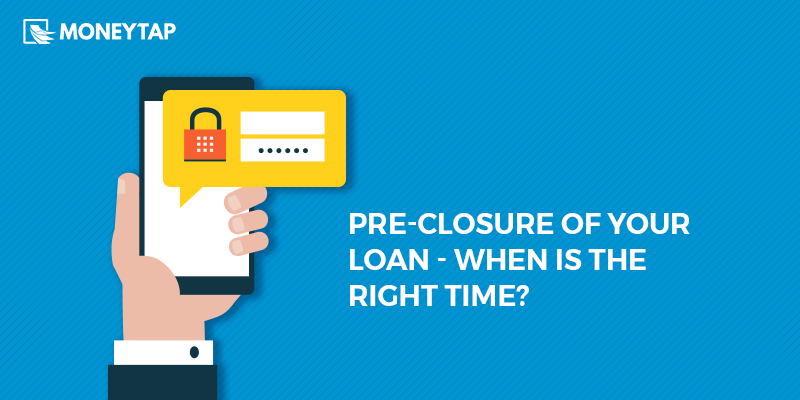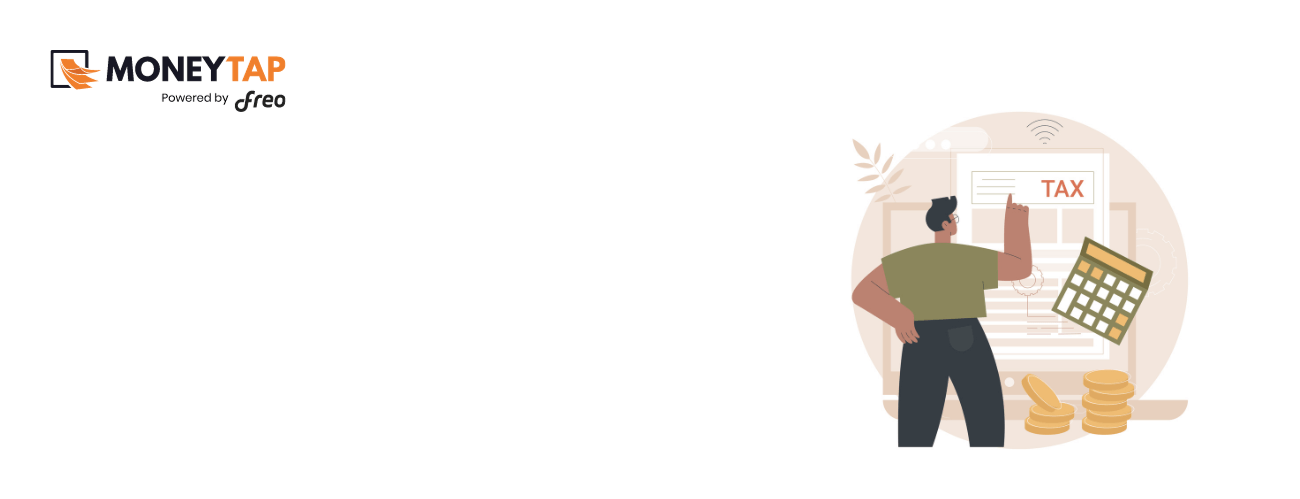Prepayment of Your Loan. When is The Right Time?
Topic
- Around India with MoneyTap 1
- Consumer Durable 1
- Credit Cards 32
- Credit Score 27
- Finance 33
- General 52
- Know MoneyTap Better 26
- MoneyTap 50
- MoneyTap in Daily Life 38
- Personal Loan 86
- Shopping on EMI 4
- Wedding Loan 1
Considering the cut-throat competition in the finance sector, it comes as no surprise that banks have churned out some attractive loaning schemes. Adding to this is the amazing speed at which the loan applications are processed, thanks to the automation in the credit origination process.
But in the gung-ho, people often overlook an important aspect of borrowing money from banks or finance organisation: Prepayment! Prepayment is basically an option provided by financial institutions to the customers allowing them to repay the loan availed much before the due date of the loan expiry. For instance, assume you have availed credit for a certain amount for three years at an interest rate of 18%. Two years later, you get a lump sum after leasing out your property, following which, you can choose to prepay your loan earlier than the stipulated three years. Prepayment can have a positive impact on your credit score, provided all previous EMIs have been paid regularly.
Note: The terms and conditions of the financial institution will drive the prepayment aspect of the loan agreement. Some banks, for instance, don’t encourage prepayment in their rules-set.
But I’ve Been Saving Elsewhere!
If a lack of a prepayment option in your loan agreement doesn’t bother you simply because you’ve been saving in parallel, you’re mistaken. Assuming you have availed a loan at 15% interest rate, it is advisable to prepay your loan for a simple reason that even if you save consistently, the savings made per annum might not be more than 8%, adding to this is your loan at 15% per annum interest rate. Prepaying the loan in this case can help you save around 7% on interest per annum.
Prepayment Vs. Investment
This is another common conflict most people experience, especially those who have availed bigger loans such as home loans. Even though prepayment is advisable under normal circumstances, there is a catch here: Home loan interest is tax deductible! This feature makes it a cheap loan, which means you will do better for yourself if you invest that money somewhere to get a relatively better return than repaying the home loan.
On the flip side, a few financial pundits recommend that repaying the loan when you have spare cash is a best practice. There are basically two reasons for this:
1)The math that goes behind the comparison between return on investment and the loan repayment is usually beyond the comprehension of the common man.
2)The interest rate on home loans is always calculated on the remaining outstanding principal. This typically means that the interest outgo as a percentage on outstanding principal is the same whether it is after the 24th month or after the 120th month. So, don’t refrain from prepaying the loan based on the assumption that the interest component is low at any point through the loan tenure.
Will I be Charged?
Despite the fact that it hurts to be charged for being nice to the bank by prepaying the loan, you have to deal with the reality. The banks charge you on prepayment because they need to make up for the loss of what would otherwise have been their income that they might have earned in interest over the extra period.
Different banks charge differently on the prepayment. The rate of interest ranges between 4% and 5% on the outstanding loan amount at the time of the one-time payment of the loan. Besides this, prepayment fees also depends on the loan tenure that has been completed. In this regard, some banks offer zero prepayment fees, while some make customers happy by providing discounted rates based on the duration the loan has been paid until then.
What Should my Priority be?
It is not uncommon for people to get caught in the conflict between prepayment fees and interest rate. Packages with lower prepayment fees are appealing but if they include a higher interest rate, steer clear of them. Unless the customer is expecting an upswing on the income, it is advisable to pick a package that has a lower interest rate even though the prepayment fee is higher.
Even when the prepayment fees doesn’t really concern you much, it is a safe practice to take into account the financial needs that are on the horizon. If you think that you will require the money to meet the financial goals such as paying for your daughter’s education or paying for the treatment of an elder in your family, there’s absolutely no harm in delaying the payment.
Your prepayment decision must be based on the prevailing interest rate and availability of cash with you. The right time or wrong time to pre-close the loan varies on individual circumstances. It depends on current income status, any expected upsurge in the income or emergencies.











 Get it on playstore
Get it on playstore Get it on appstore
Get it on appstore